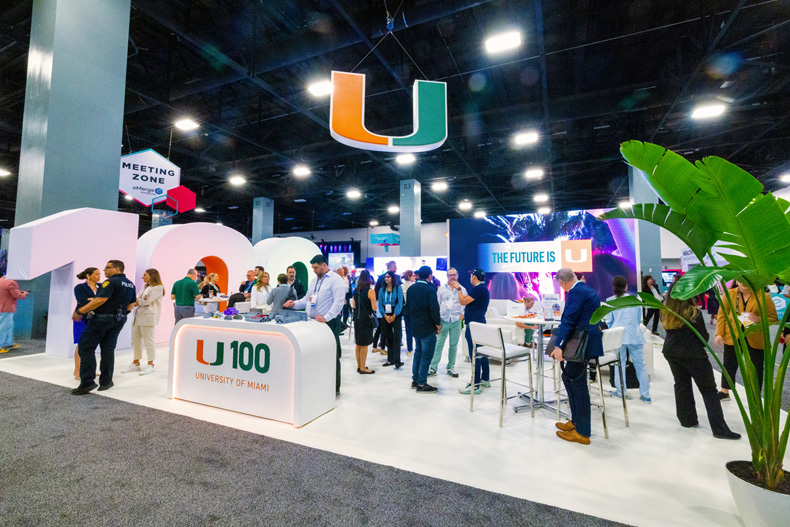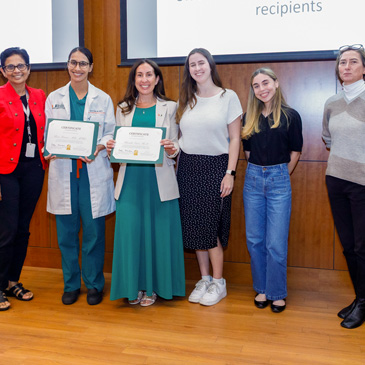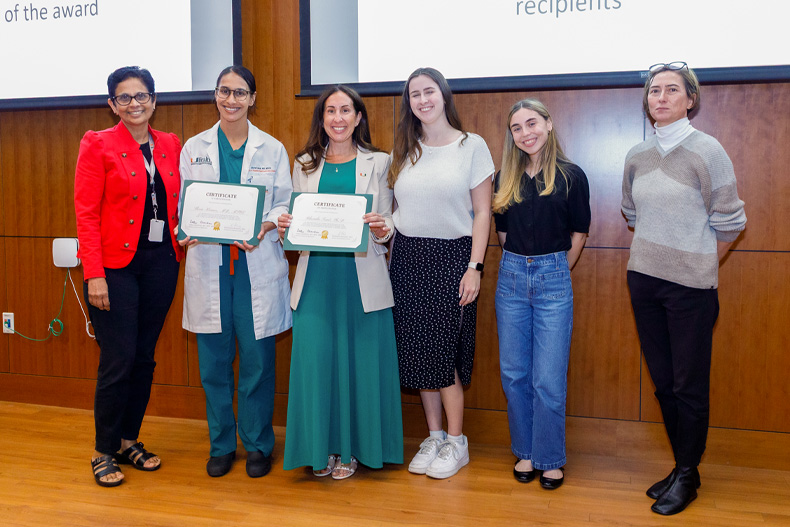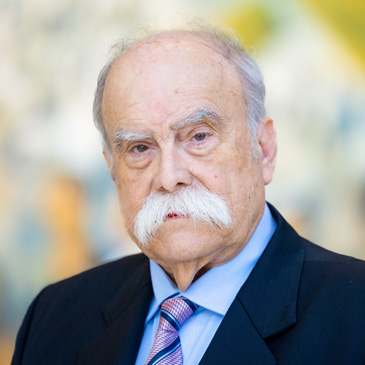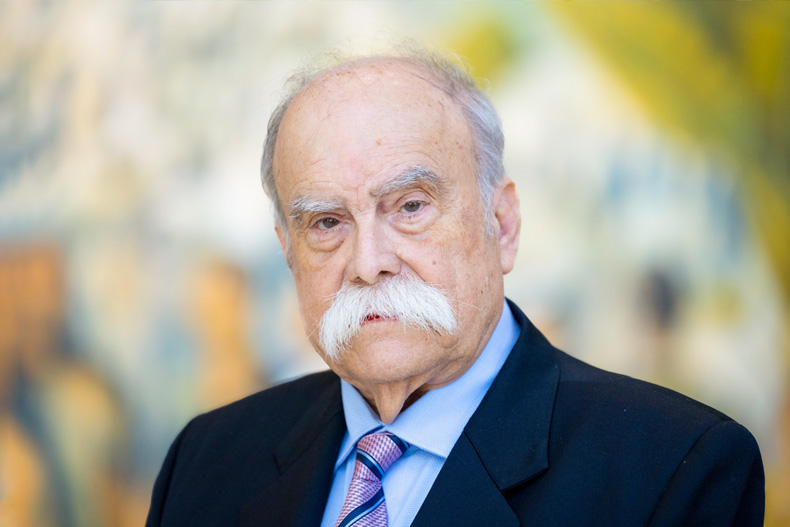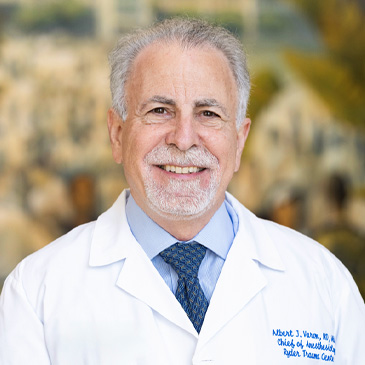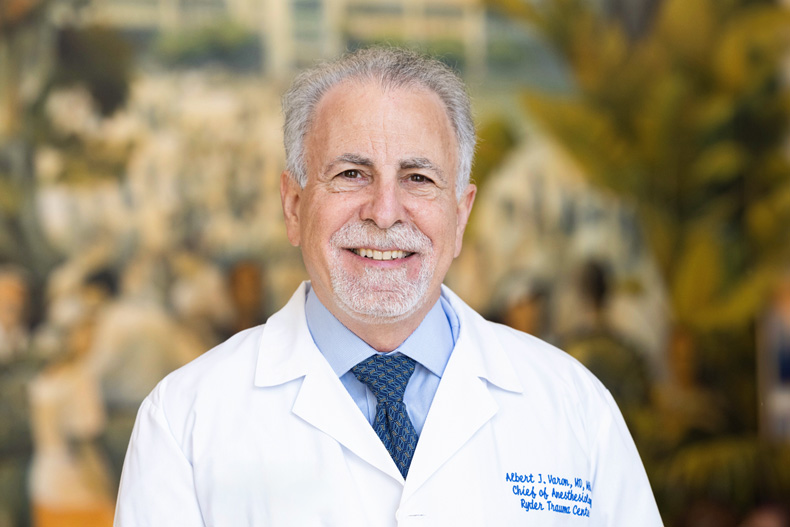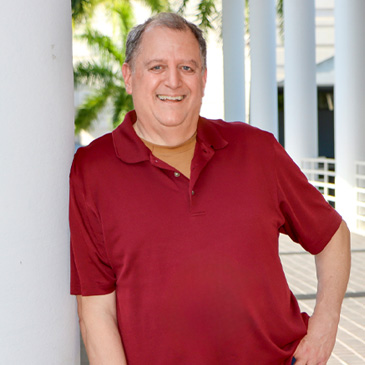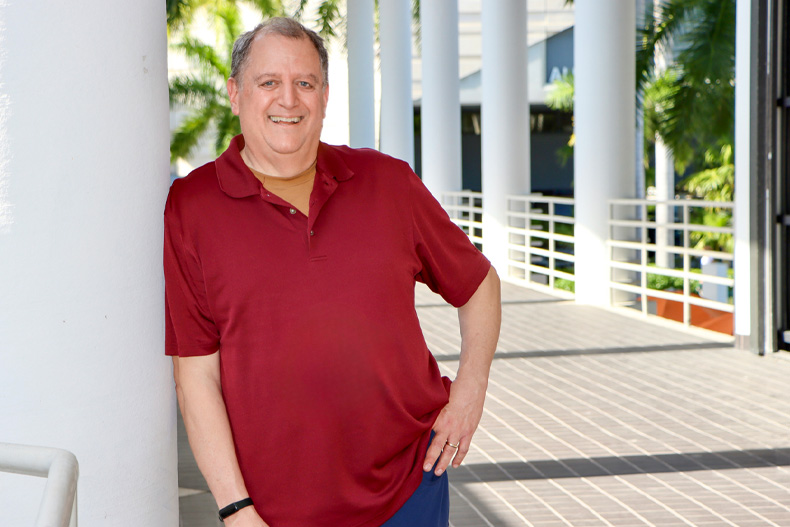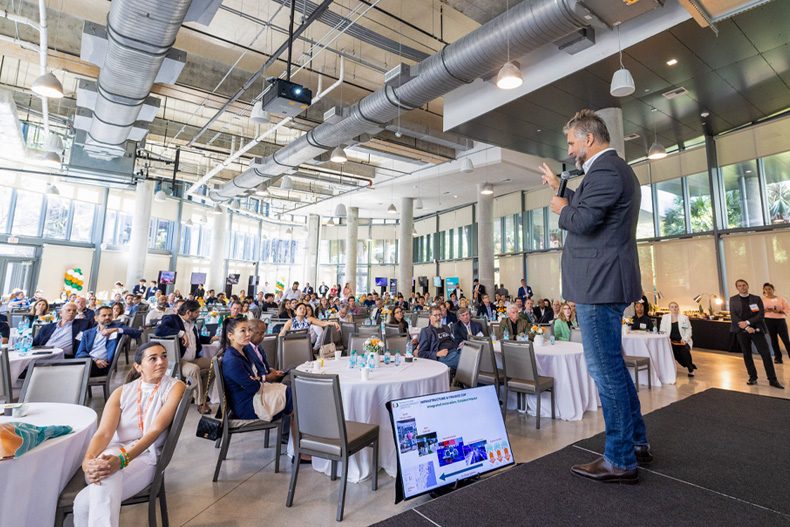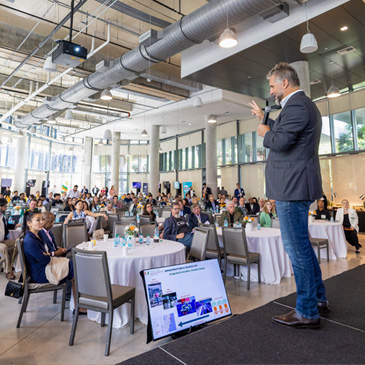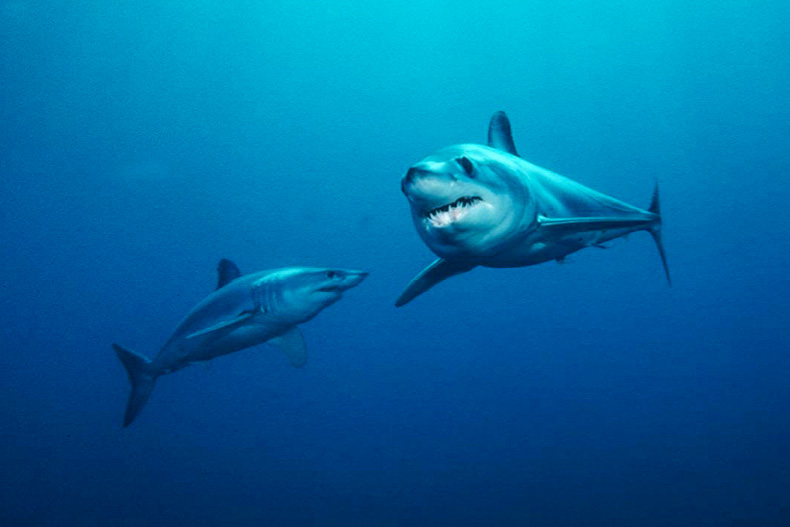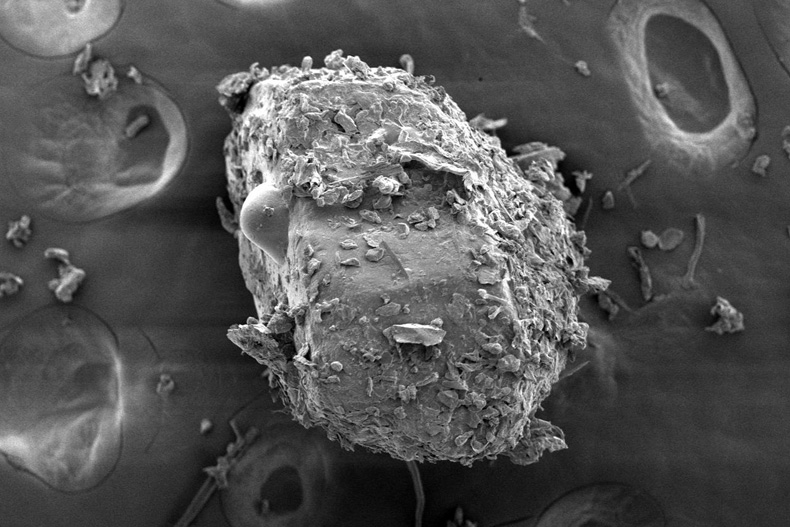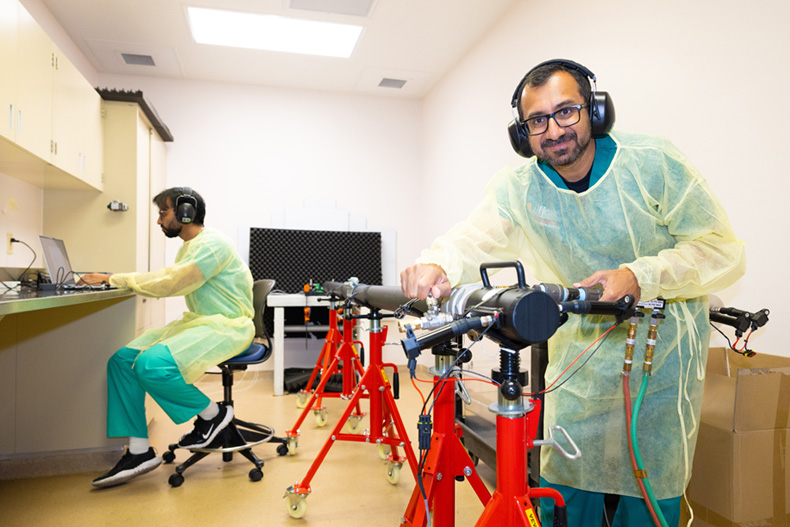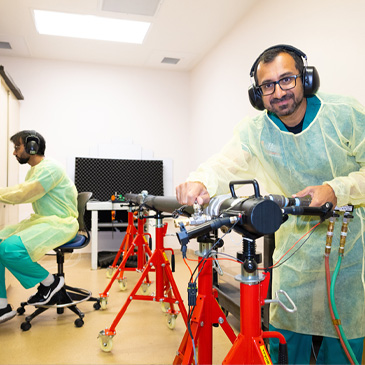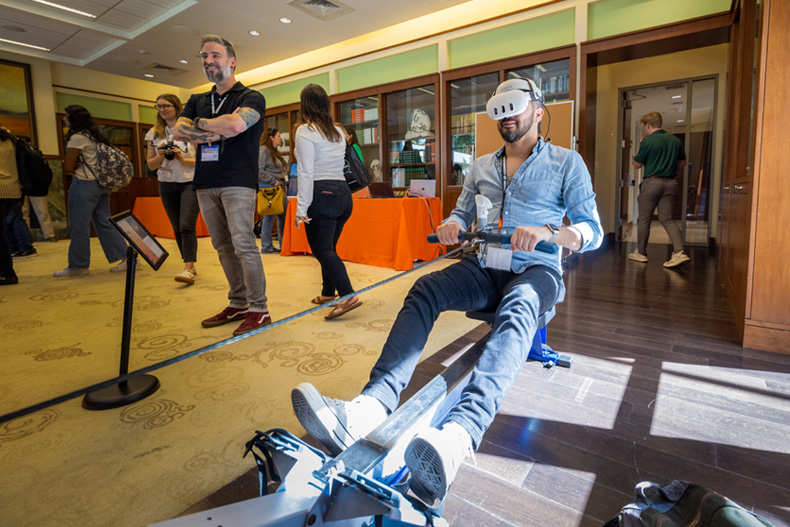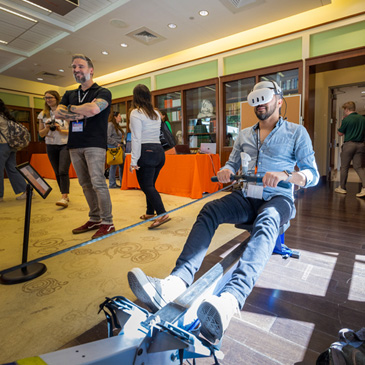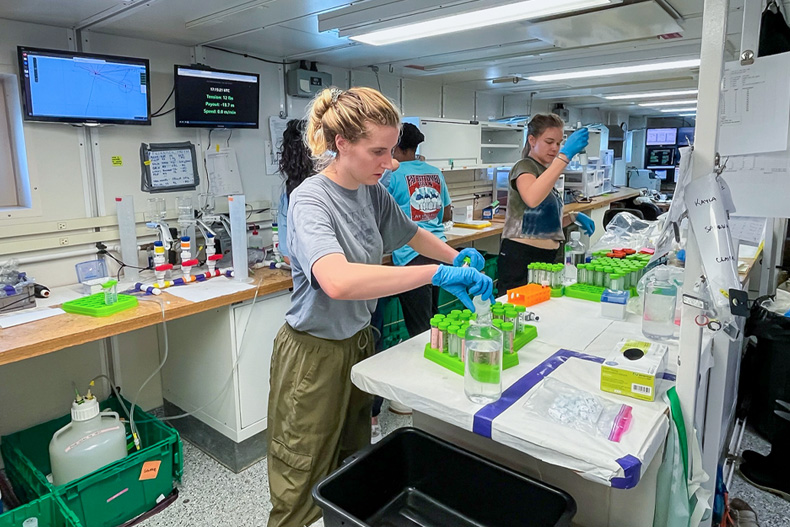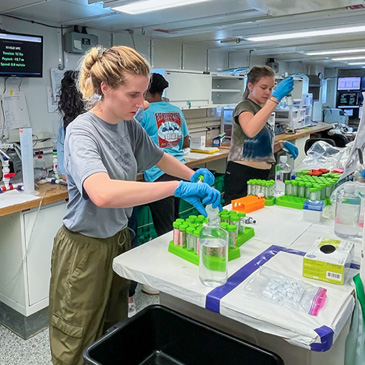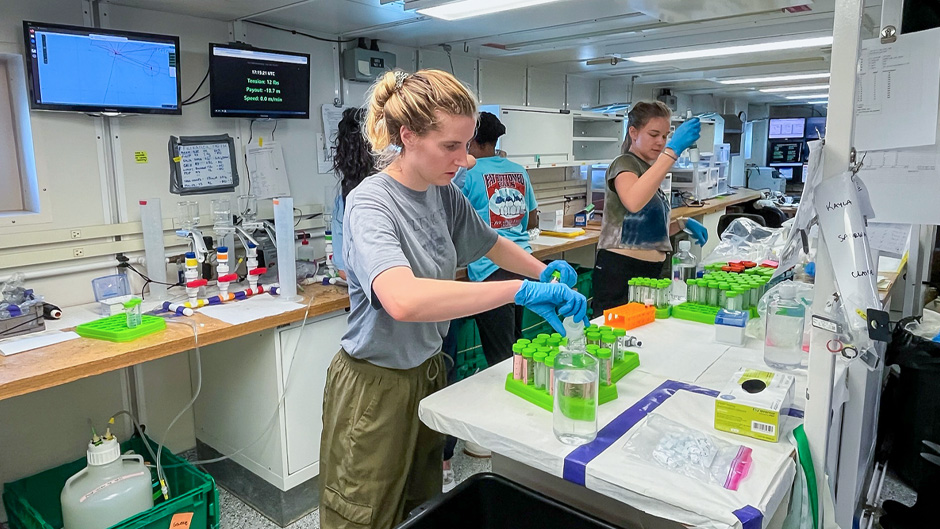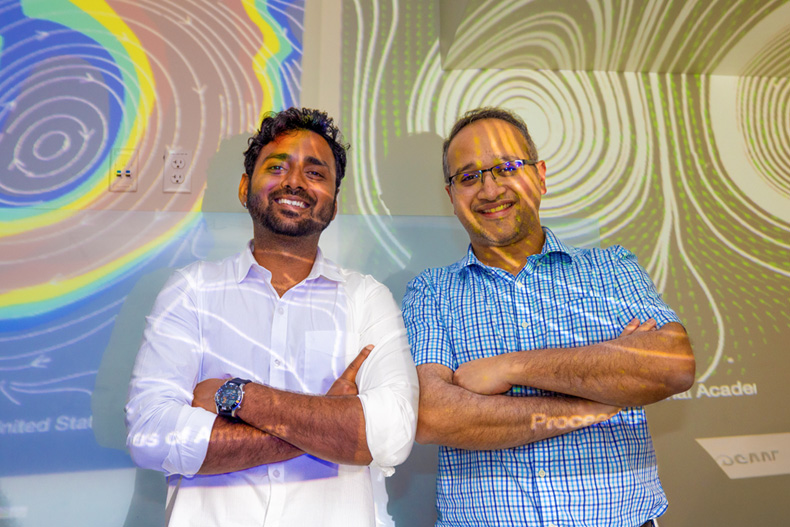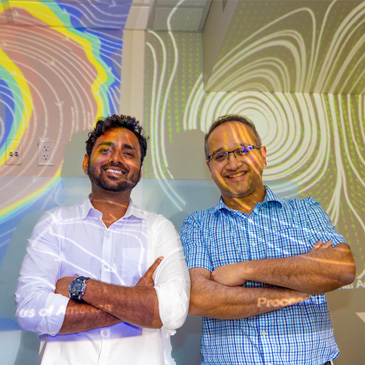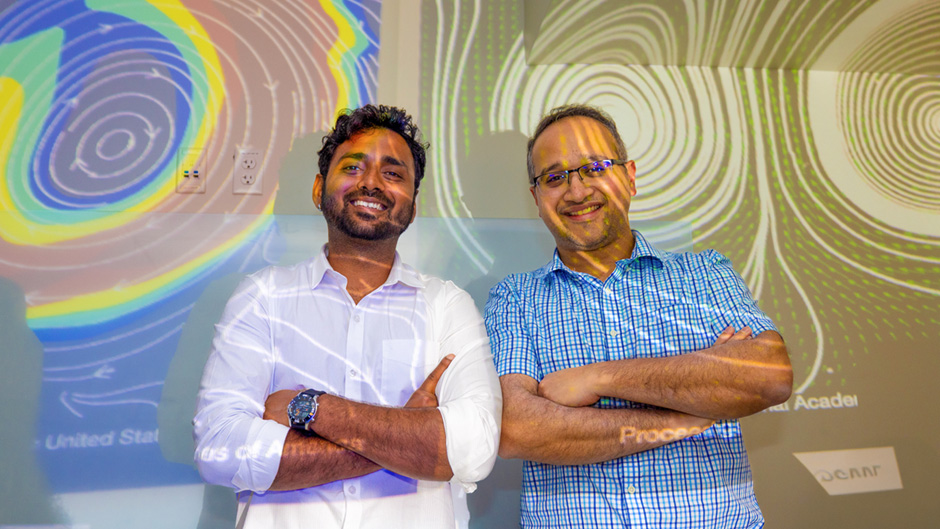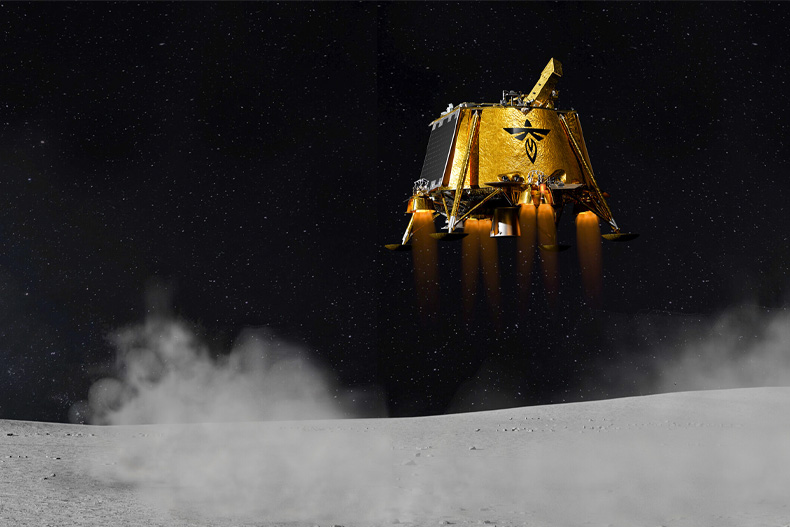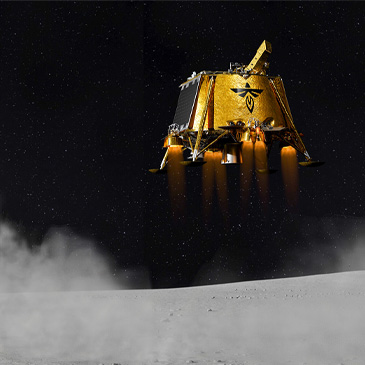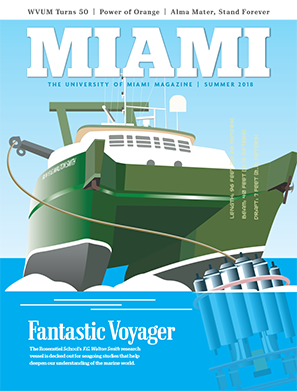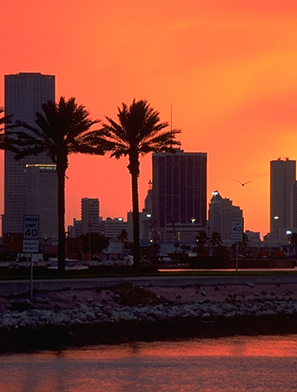Research
The U shines at eMerge Americas
Students, researchers, doctors, and scientists showcased some of the innovative, technologically advanced, and creative ways the University of Miami is making a difference in the world.
School of Communication and Miller School of Medicine team up for innovative projects
Funded by the Mitchell Wolfson Foundation, the interdisciplinary research studies enhance the academic mission of both schools.
Faculty excellence commended
Dedicated to his students and the University, Dr. Tomás A. Salerno, professor of surgery in the Cardiovascular Division, is honored with the 2024–25 James W. McLamore Outstanding Service Award by the Faculty Senate.
Honoring a passion for shaping future doctors through mentorship
A member of the University of Miami faculty for more than 40 years, Dr. Albert J. Varon, professor of anesthesiology at the Miller School of Medicine, is this year’s recipient of the Outstanding Teaching Award for his decades of mentorship and leadership.
El Niño inspires a young man’s passion for science
Benjamin Kirtman, professor at the Rosenstiel School of Marine, Atmospheric, and Earth Science, is this year’s recipient of the Distinguished Faculty Scholar Award for his scholarly research and contributions to the natural sciences.
Building a resilient future
The University of Miami's Climate Resilience Institute is hosting the Resilience 365 Conference March 24-25 to kick off the inaugural Miami Climate Week.
Dangers that lurk beyond the wilds
Using a new web crawler they developed, two University of Miami researchers and others conducted an extensive study on the scale and scope of the online trade of endangered species.
Exposing the ‘DIRT’ on dust
In one of the few studies of its kind, a University of Miami doctoral student and others have documented the particle size of household dust found on children’s hands after play activities.
Sharing insights about the future of XR
The University’s first Miami XR conference attracted industry leaders and educators from across the nation who discussed integrating extended reality in our lives.
The digital dilemma: To grow or not to grow
New research tracking the meteoric rise of Douyin, the Chinese version of TikTok, provides guideposts for navigating collaboration and competition in the digital sphere.
Telescoping from the moon
A University of Miami astrophysicist collaborated on an X-ray telescope headed to Earth’s nearest celestial body, where the instrument will capture the first-ever images of X-rays emanating from the edges of our planet’s vast magnetosphere.



